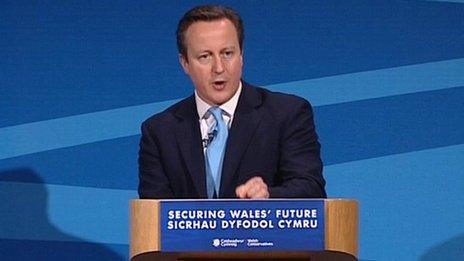Welsh NHS deserves an apology, says Carwyn Jones
- Published
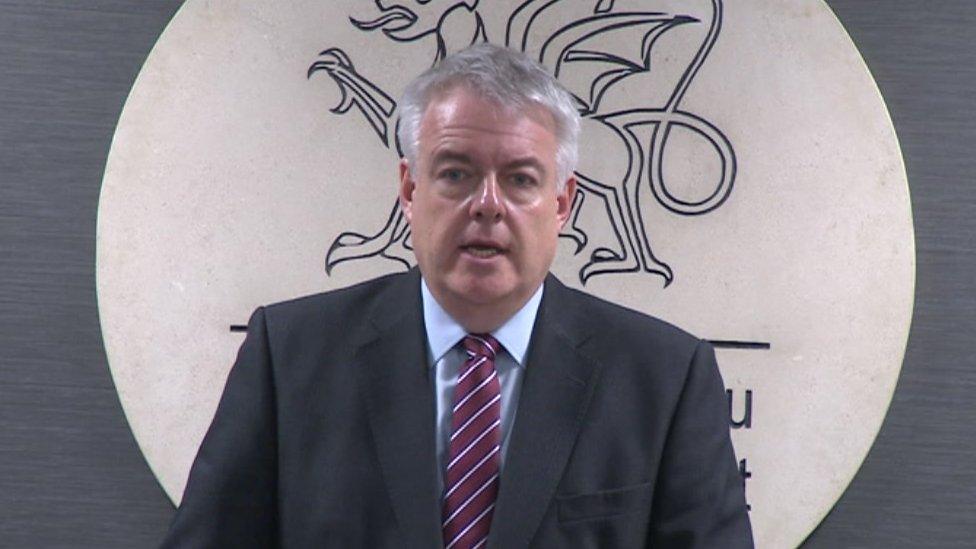
NHS staff in Wales deserve an apology from the Tories, the first minister has said, after a major report said the health service was no worse in Wales than elsewhere in the UK.
Carwyn Jones said the OECD report, external "nails the lie that the NHS in Wales is being out-performed by England".
The Welsh Conservatives pointed out the OECD had not looked at waiting times.
Plaid Cymru said the report backed its view that local health boards were "not fit for purpose".
Mr Jones claimed David Cameron and Health Secretary Jeremy Hunt had "denigrated" NHS staff in Wales to gain political advantage.
He said the UK government should examine its own record on health in England.
Mark Drakeford says the report 'puts the lie to bed' that Wales had a poorer NHS
"There is a good reason that junior doctors are not on strike in Wales," he said.
"It is because we value our NHS workforce, and work with them to modernise and bring through change.
"With a growing social care crisis in England, and the continuing doctors' strike, it is time the Tories focused on getting their own house in order.
"We accept that the NHS in Wales has challenges ahead - just like every healthcare system in Europe - and we are up for meeting that challenge.
"That is why we spend more on the NHS and on social care than in England; why access to cancer drugs is faster and why we are investing more than ever in training nurses and other NHS staff."
Spending 'slashed'
Welsh Conservative leader Andrew RT Davies said Labour needed to apologise for longer waiting times in Wales, availability of cancer treatments, and £1bn of budget cuts since 2011.
"Let's be clear - this report is not a comparison study, and it fails to take into consideration one of the most important aspects of the patient experience - waiting times," he said.
"Previous reports by the House of Commons Library, the Wales Audit Office and the Nuffield Trust have showed that spending has been slashed by Labour since 2011 and that waiting times are much longer here in Wales."
Plaid Cymru's health spokeswoman Elin Jones pointed to the OECD's criticism of the local health boards in Wales, and recommendation of "a stronger central guiding hand".
"The health board model that currently exists in Wales is too cumbersome and unwieldy, and Plaid Cymru is proposing a model to create nationally-designed hospital services serving local communities throughout Wales with a modern, safe service," she said.
"Plaid Cymru will create a Community NHS to integrate all local health and care services, to meet the needs of local communities and to be innovative in its response to those needs."
A UK government Department of Health spokeswoman said: "This report shows the NHS is a leader in transparency, implementing quality and collecting patient feedback, which are all essential to our promise to deliver high quality care to every patient, seven days a week.
"We know there is still much more to do in order to make the NHS the safest healthcare system in the world, which is why we have prioritised frontline care and invested £10bn to fund the NHS's own plan for its future."

Analysis by Tomos Livingstone, BBC Wales political correspondent
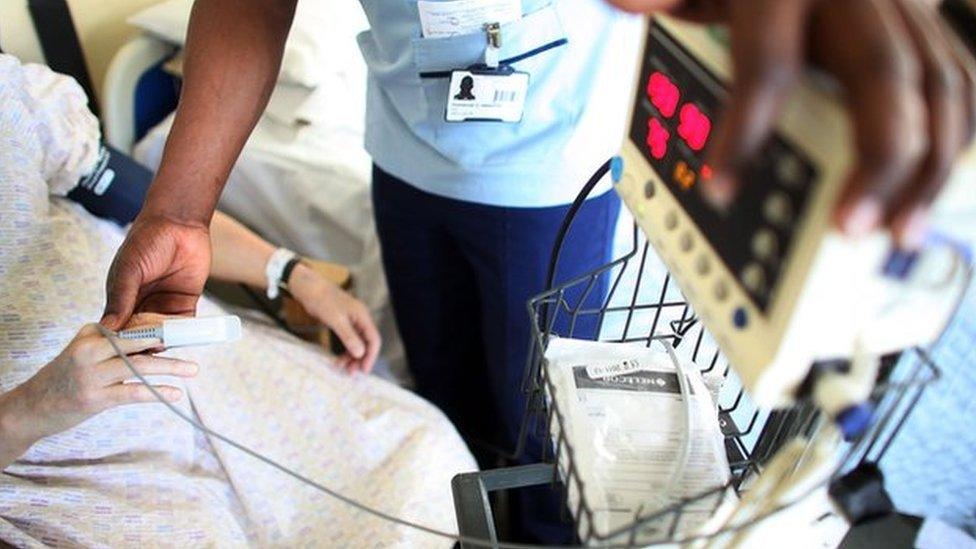
The political stakes couldn't really be higher as the governments in Cardiff and London digest the OECD report this morning.
I was in Llangollen in 2014 when David Cameron made his remark about the Welsh border being a "line between life and death".
It animated the bitter disagreements between the two administrations on how the NHS should work, and it's soured the relationship ever since.
The Conservatives insist they were drawing attention to perceived failings by the Labour-run Welsh NHS - and given the Tory gains made in last year's general election, they may feel vindicated.
But Labour insist they were unfairly criticised - yes, some waiting times are longer, but on other indicators Wales is doing better than England.
It's fair to say some in the Welsh government found the relentless media focus in the wake of the Cameron remarks pretty bruising.
The OECD (which didn't look at waiting times, by the way) concludes that Wales isn't doing better or worse than its neighbours - hence the demand from the first minister for an apology from the PM.
He's unlikely to get one - and, with an assembly election in three months time, don't expect the rhetoric to be toned down either.
- Published12 February 2016
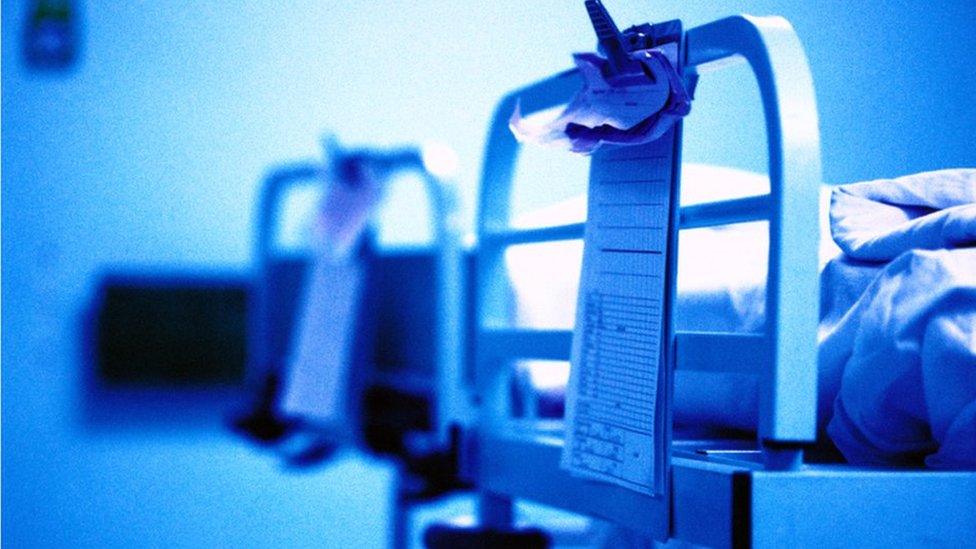
- Published12 February 2016

- Published28 January 2016
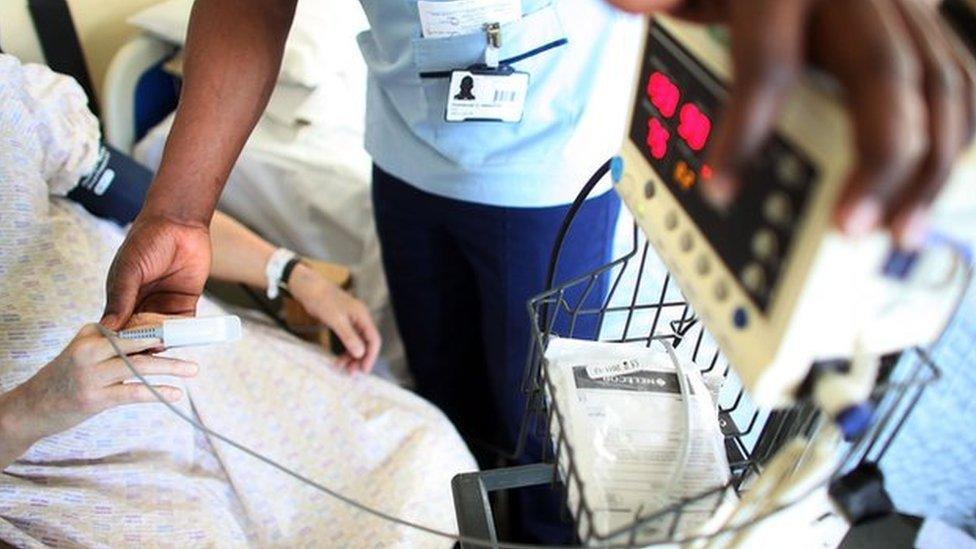
- Published11 April 2014
